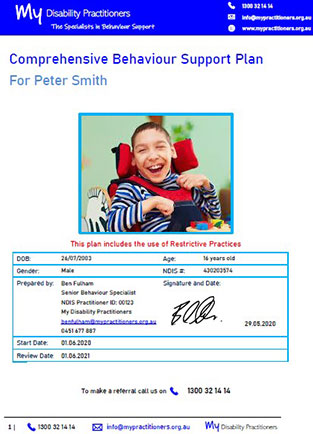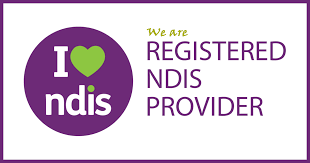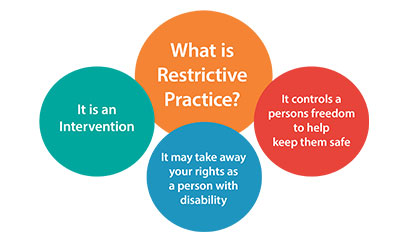
How is behaviour support different from therapy?
Behaviour Support is aimed at helping the support system (carers, services, staff) to identify the function of specific behaviours and to provide a consistent approach to behaviour change in a written Behaviour Support Plan. On the other hand, Therapy is typically provided through regular one on one session with a therapist. Usually, in therapy you don’t receive a behaviour support plan.All our Behaviour Support Practitioners are supervised and overseen by our Senior Specialist Behaviour Support Practitioners (Ben Fulham or Chadi Wahab) who each have over 30 years’ combined experience providing Specialist Behaviour Intervention.
What is a Behaviour Support Plan?
A Behaviour Support Plan is a written document developed by our behaviour specialists is consultation with the person, their family and support network. It is essentially a “how to” support guide that provides guidance of how to support a person when they are displaying behaviours of concern and provides clear strategies in skill development to reduce the persons use of problem behaviour in the future.Our practitioners are a part of a multi-disciplinary team of psychologists, occupational therapist, speech pathologists and behaviour specialists working collaboratively with other professionals including (but not limited to) school teachers, paediatricians, case managers and other allied health professionals.
Our Behaviour Support Plans are based on years of research, feedback and consultation with carers, support workers and families. We have taken “what works” and ensured all the elements of best practice in behaviour support. Combined with our person-centred approach, we achieve results!
Sample Support Plan

What is included in the Behaviour Support Process?
- 1Behaviour Assessment
All behaviour has a ‘function’ or a reason. Our specialists will assess the reasons and develop the intervention needed to address the function. - 2Behaviour Support Plans
Our specialists write step-by-step, easy to follow plans that guide families and professionals in how to implement positive behaviour support.
What Makes Behaviour Support Successful?
Positive Behaviour Support (PBS) is not just about managing the problem behaviour, it’s about learning to communicate, developing skills needed to be independent and/or to learn self-control or manage emotions. Positive Behaviour Support aims to reduce challenging behaviour by helping the person develop skills they need, so they no longer rely on using problem behaviours into the future.
Sample Personal Profile

Are My Disability Practitioners registered with the NDIS to deliver Specialist Behaviour Support?
Yes. My Disability Practitioners undergo third party audits to ensure they are qualified, and that our behaviour support service meet the NDIS Quality and Safeguard Commission standards for best practice in behaviour support.

What is a restrictive practice?
A restrictive practice is a practice that is used to limit or control a person’s behaviour. These practices are often required to ensure the safety of an individual or others around them. There are specific requirements for assessing the need for a restrictive practice, documenting and also reporting such practices to both the Quality and Safeguard Commission and NSW Family and Community Services. Our team of behaviour specialists are accredited as practitioners with the NDIS and if required can develop behaviour support plans with restrictive practices. We have extensive experience in understanding what is required to develop of a Behaviour Support Plan that contains restrictive practices.

How do I make a referral for behaviour support?
You can make a referral to My Disability Practitioners for behaviour support by completing the NDIS referral form on our website or by emailing us at [email protected] or contact us

 tel: 1300 32 14 14
tel: 1300 32 14 14

